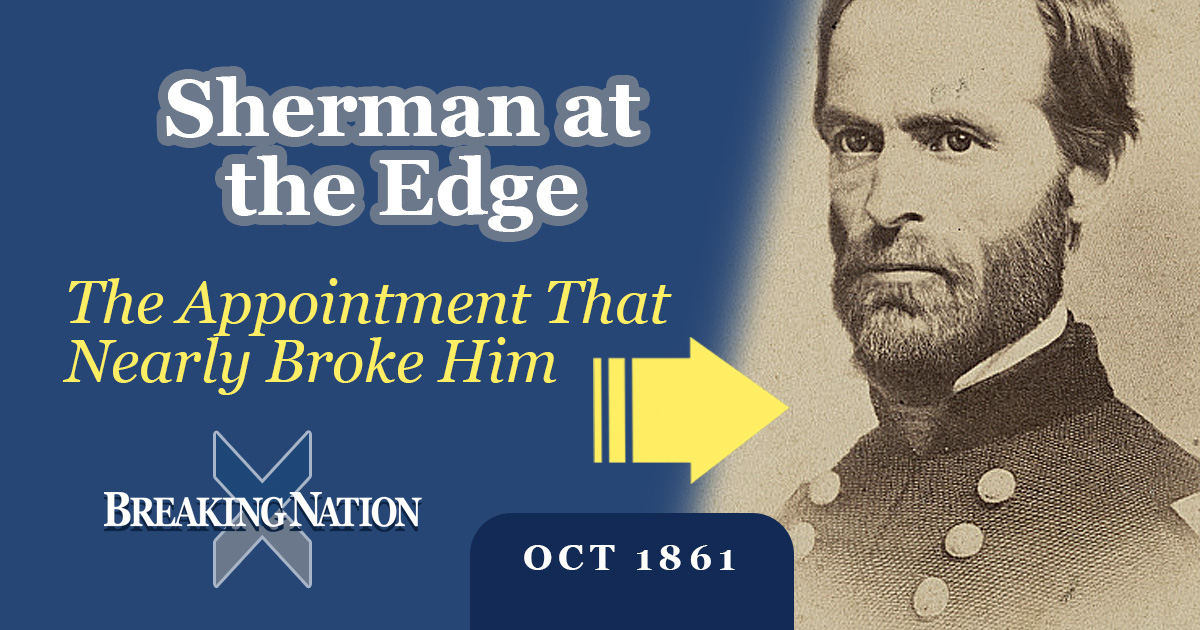Sherman’s Cumberland Command: Ambition, Pressure, and Collapse

On October 8, 1861, General William Tecumseh Sherman was appointed to command the Union’s Department of the Cumberland, a position that—while short-lived—offers a revealing window into both Sherman’s career trajectory and the broader state of Union strategy early in the Civil War. The significance of this moment lies less in immediate military victories and more in what it shows about the evolving expectations for Union generals, the challenges of defending the border states, and Sherman’s own complicated emergence as a major figure.
At this point in the war, Kentucky was a central concern. Officially neutral at the outset, the state was being contested by both Union and Confederate forces by the fall of 1861. Whoever secured it would gain not only manpower but also critical access to the Ohio and Mississippi river valleys. Sherman’s assignment reflected Washington’s desire to shore up Union control there and prevent Confederate incursions northward. The Cumberland Department encompassed Kentucky and parts of Tennessee—territory both sides recognized as strategically indispensable.
Sherman’s assumption of command also highlights the enormous pressures placed upon generals in the first year of the conflict. With the memory of the disastrous Union defeat at Bull Run still fresh, Lincoln and his administration sought aggressive leaders who could bring order and initiative to contested regions. Sherman, known for his organizational skills and energy, seemed a natural fit. Yet the expectations were almost impossibly high: he was tasked not only with defending Kentucky but also with planning potential offensives into Tennessee.
The strain of this responsibility quickly revealed Sherman’s fragility under pressure. His requests for massive reinforcements and his grim assessments of Confederate strength were interpreted in Washington as signs of instability. By November, he was relieved of command, his department folded into Buell’s Department of the Ohio. Many newspapers branded him “crazy,” a reputation that nearly derailed his career.
And yet, in hindsight, this episode was crucial. First, it demonstrated the Union’s recognition of Kentucky’s strategic importance—long before Grant’s victories in 1862 confirmed it. Second, it underscored how volatile the process of finding effective commanders was in the war’s early stages. Finally, for Sherman himself, the brief command was a crucible. Though humiliated in the short term, he rebounded, and by 1862–63 he had regained Lincoln’s confidence, eventually rising to become one of the Union’s most formidable generals.
Thus, Sherman’s October 1861 appointment was significant less for battlefield results than for what it reveals about the Union’s precarious position and the personal evolution of a general who would, by war’s end, redefine American warfare.
Breaking Nation: A Civil War Podcast explores the American Civil War, its turning points, and our national memory. Discover full episodes, transcripts, and resources at www.breakingnation.com — your destination for in-depth Civil War podcast content and fresh perspectives on America’s past. Listen on Apple Podcasts, Spotify and Amazon Music.




